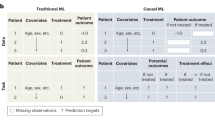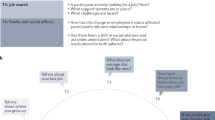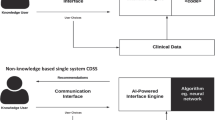Abstract
PROBABILITIES from independent significance tests, in which usually none of the separate probabilities is significant, are usually pooled by Fisher's method1, which is based on the product of the individual probabilities. Although Fisher states that a χ2 transformation provides an exact test of significance in this situation, Wallis2 pointed out some time ago that this is only true if the separate probabilities are derived from continuous distributions. When the original distributions comprise a limited number of finite probabilities, Fisher's transformation often results in a considerable over-evaluation of the true probability of the product.
This is a preview of subscription content, access via your institution
Access options
Subscribe to this journal
Receive 51 print issues and online access
$199.00 per year
only $3.90 per issue
Buy this article
- Purchase on Springer Link
- Instant access to full article PDF
Prices may be subject to local taxes which are calculated during checkout
Similar content being viewed by others
References
Fisher, R. A., Statistical Methods for Research Workers, thirteenth ed. revised (Oliver and Boyd, Edinburgh, 1958).
Wallis, W. A., Econometrica, 10, 229 (1942).
Author information
Authors and Affiliations
Rights and permissions
About this article
Cite this article
MCLAUGHLIN, R. Combination of Probabilities from Significance Tests. Nature 220, 1250–1251 (1968). https://doi.org/10.1038/2201250a0
Received:
Issue Date:
DOI: https://doi.org/10.1038/2201250a0
Comments
By submitting a comment you agree to abide by our Terms and Community Guidelines. If you find something abusive or that does not comply with our terms or guidelines please flag it as inappropriate.



